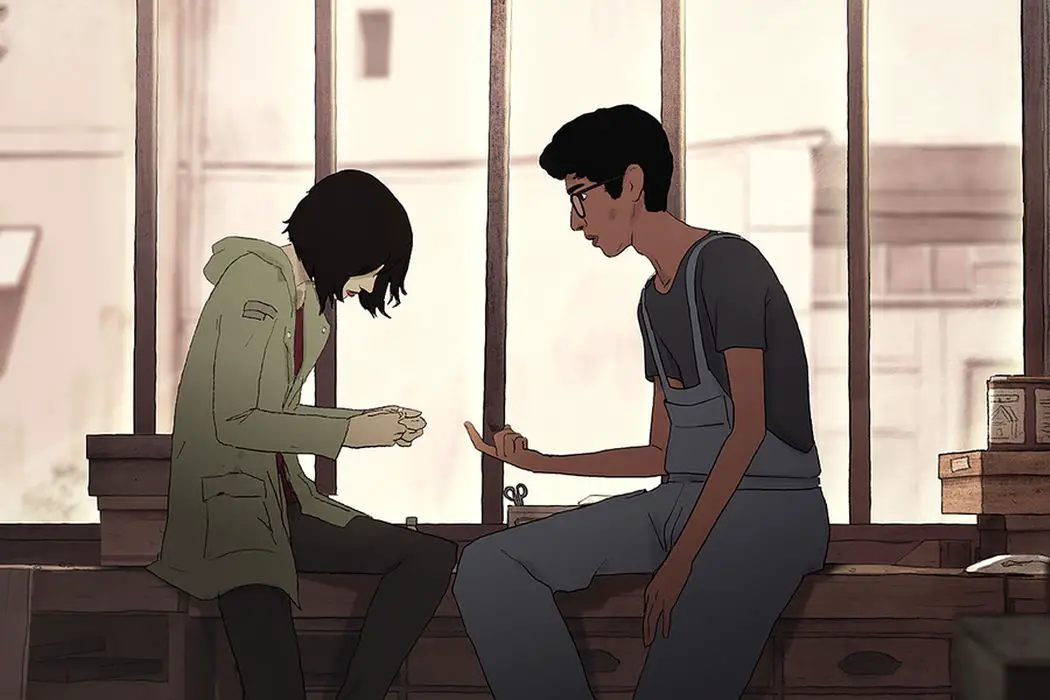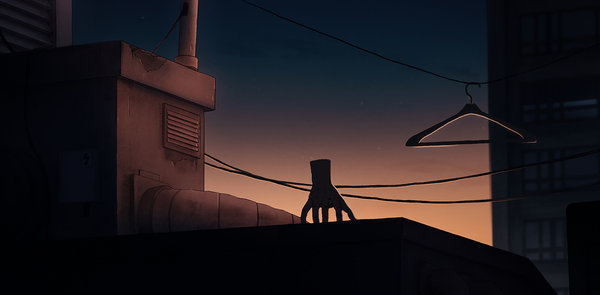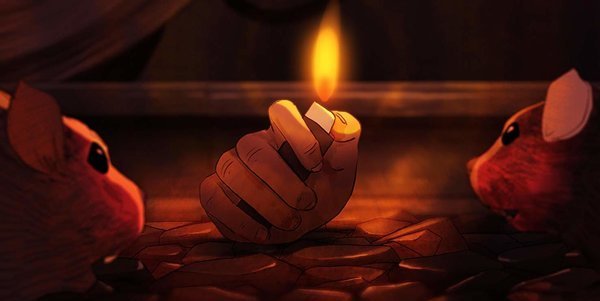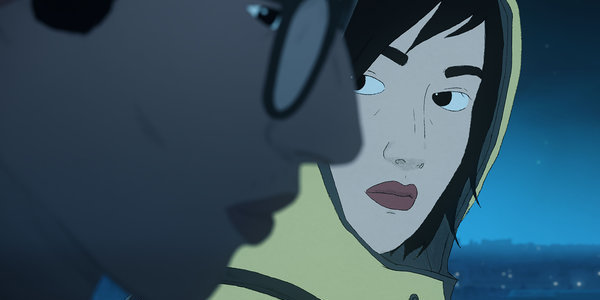I LOST MY BODY: An Animated Reflection Of Life Affirmation

Joseph Dominguez is a Southern Californian with a degree in…
With production giants Pixar and Dreamworks ruling the landscape for animated films, there’s plenty to choose from to get you through the weekend. If, however, you’re in the mood for an independent animation film with just as much, if more more, voice and emotion at its core, Netflix has you covered.
I Lost My Body, or J’ai Perdu Mon Corps, is a French animation film directed by Jéremy Clapin. The film weaves together two narratives, ultimately tying them up in a thoughtful and poignant conclusion. By powerfully capturing the story and invoking questions about the human condition, I Lost My Body becomes a film that almost seems transcendent of the genre, and it’s well worth diving into.
In the film, one of the storylines follows Naoufel, a boy who ruminates over his inadequacies with work and seeks to find value in his life. In another story, an anthropomorphic severed hand, cut just above the wrist, roams the busy streets in search for the arm it should be attached to. While the lead protagonist endeavors within himself and follows a love interest, the hand’s journey becomes a captivating adventure, filled with suspense and immersive imagery.
A Film Made For Animation
It’s no secret that not all stories translate well into live action — this is what’s commonly said with anime adaptations. More so than simply suiting the animation medium, I Lost My Body further finds a unique style that adds a greater sense of vitality to its premise. It’s not as cartoonish as is usually seen in Japanese animated films, yet it’s not as surreal as what could be seen in episodes from Netflix’s Love Death and Robots.

The film commonly uses still images and drawings for backdrops, and they seem to fit seamlessly with the animation of the characters. The colors are vibrant and striking throughout the movie, but there’s also a tendency to dampen the tones of certain scenes in order to convey a change in emotions and moods. Although they’re completely different styles, I Lost My Body is similar to Waking Life in the way the two films are able to explore philosophical ideas through strange yet striking visuals.
More so than being struck by stunning visuals, I couldn’t help but be entranced by the sound design and score, which added depth to the drama and suspense. The score is subtle, but it comes with an elegant yet dreamy essence that complements the story beautifully, making it easier for viewers to become hypnotized by each scene.

Although the score works well for the story of Naoufel, the sound design becomes especially powerful in telling the story of the lost hand. The hand’s journey is vast, as it involves fending off a blind man and rats and scouring through frozen lakes and the sky. It becomes an immersive experience unlike many in the genre, as it captures even the slightest intricacies of nature and the stirring clashes that frequently ensue.
An Evocative and Mindful Story
This film is bolstered by many qualities, but I believe a film is only as strong as its script, and this is perhaps what’s the greatest element of I Lost My Body. It’s nowhere near perfect, but its overarching themes easily provoke thought in its viewers. Through the philosophy of determinism, or fate, the film brilliantly weaves in deeper meanings with common tropes we’re likely to find in films told through any medium (think love and hardships).

The story is essentially a coming of age tale, but it’s explored in a way that questions destiny and the deviation of it, and how we as individuals can shape our own path. It’s a very moving idea and I’d say it’s captured powerfully, but there are instances where the film does fall short.
Aside from occasionally feeling rushed, I Lost My Body doesn’t exactly have the protagonist I had expected, or at least I believe he’s used in a way that doesn’t resonate greatly. Although his character development is felt, he can seem obsessive throughout the film — or like a bit of a creep to put it bluntly. I’m not exactly sure how much of this was intentional, but I certainly felt put off by some of his actions.
Nonetheless, the story does grant a sense of life affirmation, and the subjective pitfalls of a character’s writing do not weigh down the greater narrative at hand (pun intended).
I Lost My Body: Conclusion
I Lost My Body leaves plenty to be interpreted and discovered by its viewers, and I believe it stands among some of the most thought provoking animated films of the decade. The film is visually striking with vibrant colors and finds a comfortable medium between a drawn aesthetic and surreal animation. Although I don’t believe its main narrative will strike a chord with all viewers, I Lost My Body is strangely unique, offering insight into trauma, destiny, and love.
What did you think of I Lost My Body? Where does it rank among your favorite animated films? Let us know!
I Lost My Body was released Nov. 19th, 2019. It is now streaming worldwide on Netflix.
Does content like this matter to you?
Become a Member and support film journalism. Unlock access to all of Film Inquiry`s great articles. Join a community of like-minded readers who are passionate about cinema - get access to our private members Network, give back to independent filmmakers, and more.
Joseph Dominguez is a Southern Californian with a degree in psychology and an immense love for pop culture.













